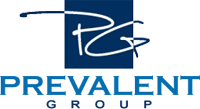When you land an engineering interview, it’s clear that your resume made a great first impression. In order to land the job, however, you must make a lasting positive impression on your interviewer. So what can you do to help increase your chances of getting a call back?
Be On Time
If you’re late to the interview, the hiring manager will remember it after you leave. Leave much earlier than you think you need to – you never know if you’ll hit traffic. If you arrive more than ten minutes early, sit in your car and go over your notes about the employer. Be sure to enter the building and check in ten minutes before the interview is scheduled to begin.
Be Prepared
An unprepared interviewee will always leave a bad impression. Do your homework and learn as much as you can about the company you’re interviewing with. You should also do some practice interviews ahead of time so that you’re prepared with answers to questions that require specific examples of your successes.
Exude Confidence
You may be as nervous as a cat in a dog pound, but don’t let it show. Good preparation can go a long way in helping you feel confident. Remember, this is not the time to downplay your career achievements. This is your time to shine. Where else but an interview will you get to boast about yourself to someone who will actually listen?
Be sure that your appearance shows confidence, as well. Break out your best power suit – even if you know the work environment is casual. Career experts tell you to dress for the job you want, and nowhere is that more important than the interview.
Always Behave Professionally
You never, ever know what type of relationship your interviewer has with others in the industry. Do not speak ill of your supervisors, coworkers, or your employers. Even if the interviewer doesn’t personally know the people you’re talking about, speaking poorly about past employers makes you look bad. Always be respectful when asked about previous employers, no matter how tempting it may be to take the low road.
Friendly will always win you points over standoffishness. Be warm and positive, and engage in a bit of small talk before the interview starts. Do not ask inappropriate personal questions of the interviewer, however. Remember, you are in a professional interview, not a cocktail party.
Bonus Tip: Say Thank you and Follow Up
Always end the interview by asking about next steps. If you fail to ask about those steps, it shows disinterest. Keep thank you notes and stamps in the car. Write a thank you card immediately and drop it in the mail on your way home. Many people choose to send thank you emails, and while there is nothing wrong with that, a handwritten note will make a bigger impression than a digital correspondence. Be sure to keep in touch with the hiring manager, but do not be a pest. Badgering will leave a negative impression.
In order to leave an interview with a positive impression, you have to do more than just show up and answer questions. Look the part, arrive on time, be prepared, and conduct yourself in a professional manner, and you’ll be sure to leave a lasting, positive mark.
If you are an engineer in the Northern Illinois area seeking new career opportunities, contact
The Prevalent Group today. Our team of recruiters can help you locate
engineering jobs in Illinois that align with your long-term career goals, and we can work with you to help perfect your interviewing skills to ensure that you always leave a positive impression on hiring managers.
